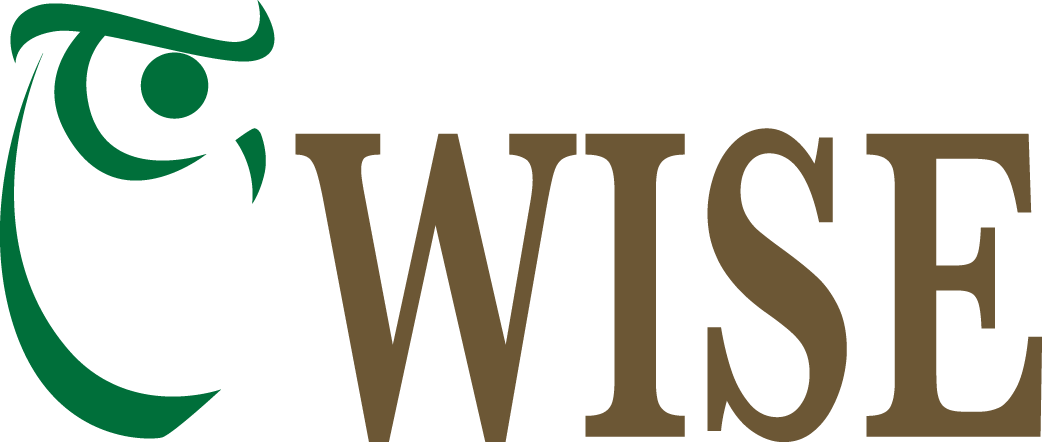|
By Moses Korth Kids Don’t Float is a statewide project where lifeguard loaner stations are installed and serviced by local organizations. WISE fulfilled the wish of a local family by installing one at Pippin Lake. Hura for the joy of it. Unconventional. That is the only way to describe the rollercoaster of a year we're having. But even as Covide-19 tries to cripple the productivity of our community; WISE has adapted its methods. WISE has begun looking at our programs, changing them so that they're still relevant, but that they honor social distancing. Robin Mayo, (the executive director) has declared, “The world is a dynamic place, and I hope I’m able to continue to do my job, and continue to have a positive impact on the decisions being made.” We have been trying to protect our community from virus spread by leading by example, and to that end we have made many sacrifices. But just because we have stopped face to face programs that doesn't mean our mission has failed. On the contrary this wrench in the works just means we have to get a little...creative. “Our mission is to provide science, and environmental education for all ages. Support for scientific research, and share the natural wonders of the copper river valley.” Robin told me during our interview. She said, “I’m motivated by a desire to share the outdoor privileges I had growing up with these kids.” And, “The knowledge that I can make a positive impact on them.” To this end we took up this project. We hope that this will give more kids the chance to play at Pippin Lake with the safety equipment they need. These life jackets could save someone's life, and are already being used. Effectively eliminating one obstacle in the way of your family, and enjoying the outdoors at Pippen Lake. This project was inspired and founded by the family of the late Sam Lightwood. It was his dream to build a swimming pool, but a pool would be too much up-keep, so his family compromised by using the money he left to found this, and other organizations. But keeping it stocked with life jackets is no mean feat. If you would like to become part of the effort to keep kids safe, and have extra flotation devices in good condition; then give us a call, at 907-822-3575. One more way you could help is to notify us when gear breaks. The last thing we want is to provide faulty equipment. I’m the intern here at WISE, and when I first heard about this project I was super excited. I had never heard of Kids Don’t Float, and had no idea what went into setting up a kiosk. Building this sign has been a very educational experience. First I had to get permission from DOT, then I had to build a blueprint to find out what materials I needed, and after I had the materials I had to build it. I had lots of help along the way. My dad helped me build it and let me use his tools, and Robin, her daughter Elvie, and part of the Upstream Student Council helped install it. We ate pizza and had a blast. I’d also like to thank everyone who was a part of making this a success. Especially BLM and the Lightwood family for funding, and Doug Vollman who obtained the life jackets. The Upstream student council, and my dad. Robin, Elvie, and Paul Boos who provided the trailer. And most importantly everyone who is using and enjoying the fruits of our labor. Construction is complete. Photo: WISE
0 Comments
By Robin Mayo
WISE and the Bureau of Land Management-Glennallen Field Office are continuing our tradition of offering summer activities to help local youth learn, grow, and get outside. For summer 2020, our activities will look different to help do our part to mitigate the spread of Covid19. We will also be hosting “Virtual Hikes” via video conference, starting with an exploration of the Alyeska Pipeline on Thursday, June 18th. Contact the WISE office for information on how to attend. Hikes and activities will be available by request for families and small groups of up to ten people comfortable with being together. This could be several families, youth from a neighborhood who are already hanging out together, or anyone else in your “bubble.” You pick the topic, and we will work with you to figure out a good time and place to meet you and have an outdoor adventure together. WISE and BLM staff will provide leadership, educational activities, and safety support, but unfortunately will not be able to offer transportation, food, or overnight camps. We will be following protocols set by the State of Alaska to prevent the spread of Covid19, and asking participants to also respect these guidelines. We hope that as the summer progresses we will be able to expand activities, but are also ready to cancel or adapt if Covid cases start showing up locally, or if state mandates change. Available Activities—Please call the WISE office at 822-3575 or email [email protected] to request activities for your family or group. We will work with you to schedule a day, time, and location that works for you. Most hikes will be about 2 to 3 hours, but we can be flexible depending on the group and activity. Boreal Forest Hike- Tree ID, forest ecosystems, and how to read the story of a tree’s life in the rings. Aquatic Ecology- Meet at a pond or stream to learn about macroinvertebrates, the water cycle, and fish ecology. Mud Volcanoes- The somewhat rugged one mile hike to this local geological oddity is well worth it! Plan on wearing mud boots and old clothes. Leave No Trace Hike- We will learn about the wonders of the Copper River Watershed, and how to be good stewards of the land with Leave No Trace games and activities. Ten Essentials Hike - What should you pack for your adventure? We will explore ways to be safe and prepared for any outdoor trip, then enjoy a hike. Outdoor Art-- We will combine a hike with an art project to grow creativity and observation skills. Tracks and Scats– Learn how scientists and naturalists use tracks and scat to read the story of the natural world. Skins and Skulls- Using WISE’s collection of skins and skulls, we will learn about local mammals, then explore the nearby forest looking for signs of their presence. Other Ideas? We are open to suggestions. If there is a topic you’d like to learn more about, or a local trail you have always wanted to explore, ask! COVID19 Risk Management Our first priority is the safety of our staff and program participants. Here are the procedures we will be following, and what we will be requesting of our participants. We will ask that participants be free of any new or unexplained symptoms associated with Covid19, including fever, chills, cough, shortness of breath, etc. Participants should not have travelled from outside the state within 14 days, or had close contact with anyone who could be carrying Covid 19. WISE and BLM staff will wear face coverings whenever we are in close proximity with others, and as much as possible stay 6 feet away. Participants will be encouraged to also follow these practices. We will be limiting sharing of items, and using wipes and hand sanitizer to clean throughout the program. Adults accompanying the children may be asked to help with activities to minimize close contact between WISE/BLM staff and participants. If the Covid19 risk for our area changes, we will cancel or adapt programs as necessary. We are looking forward to some adventures, and hope to hear from you! For more information or to request an activity: Contact WISE at 822-3575, or email [email protected]. By Robin Mayo
The Covid-19 situation has forced some big changes of WISE events in the near future, but we want to keep providing opportunities to learn, grow, and get outside. It has been discouraging to have so many cancellations and changes to much-anticipated programs like Family Ice Fishing Day, but we are also excited to be working creatively with partners and looking for ways to say “YES!” Earth Discovery Day usually brings crowds of 4th, 5th, and 6th grade students to Wrangell-St. Elias National Park Visitor Center in early May for a hands-on day of outdoor learning. Faced with cancellation, we decided to keep the spirit of the event alive by joining the students in their classroom video conferences the week of May 11-15. Sessions will include a visit with a short-eared owl at the AK WildBird Rehabilitation Center, a walk in the woods with a forester, Park Rangers, and fish biologists dissecting salmon. All Students in grades 4, 5 and 6 with Copper River School District and Upstream Learning will have a chance to participate. Look for information from your classroom teacher! We will also be hosting a science lecture on wolverines with Alaska Department of Fish and Game Biologist Mike Harrington on May 8 at 7pm. The multi-media presentation will describe the research on wolverine movements that will provide valuable data for estimating their populations, and to help game managers ensure healthy populations and sustainable harvests. The presentation will explain all aspects of wolverine biology and ecology, including reproduction, activity, habitat preferences, home range sizes, and interactions among their species. The Science Lecture will be held via video conference. If you’d like to attend, please email [email protected] or call the WISE office at 822-3575. Summer programs such as WISE/BLM hikes and Science Camps are still uncertain, but we are working on finding alternatives such as creating guides for family hikes, and hosting virtual events. Updates will be posted on the WISE website (www.wise-edu.org) and Facebook page, or call the office. By Robin Mayo
Every year, WISE recognizes a youth who exemplifies leadership, stewardship, and community service. This year, we are honoring Cassidy Austin-Merlino of McCarthy. She has participated twice in Copper River Stewardship Program, and used that experience as a springboard to get involved in statewide youth advocacy. Cassidy first came to the Wrangells in 2012, when her family started McCarthy River Tours and Outfitters. Of summers in McCarthy, she said “The most important childhood memories were here, with the community and going on adventures. Because of that I fell in love with the environment, wanting to find different ways to explore it, and preserve it for future generations.” WISE first met Cassidy when she joined our inaugural Geology Camp in 2016. It was the first time we gathered youth from the Copper Basin and McCarthy to explore and learn together. For Cassidy, it was a chance to meet a larger circle of youth and introduce them to her beloved home. The next year, she came on Copper River Stewardship Program, spending 10 days with a cohort of youth from diverse communities. Cassidy quickly emerged as a leader with her knack for making friends, infectious enthusiasm, and eagerness to learn. “That trip was super life changing for me…..it inspired all of the activism I do now. I started falling more in love with the watershed I live in.” In 2018 Cassidy participated in Alaska Forum on the Environment with her Copper River Stewardship Program cohort, and Alaska Youth for Environmental Action’s Civics and Conservation Summit. “It was youth from all over the state bringing in different perspectives, from the Arctic and Indigenous Communities, that was super eye opening for me.” From her winter home in Anchorage, she started getting involved with statewide campaigns such as salmon habitat conservation. She led the committee that organized the student Climate Strike last September, and was featured in a story on KTUU News. In 2019 Cassidy once again came on Copper River Stewardship Program as youth leader, with additional tasks including organizing media files, leading group discussions, and mentoring other students. At home in McCarthy she worked long shifts as a dishwasher, organized a community action group, and still found time for boating, biking, making art, and exploring the wilderness. When I spoke to Cassidy in late March, her family was in McCarthy, taking advantage of the isolation there to ride out the coronavirus. Although lamenting the loss of senior year rituals, she looking forward to attending Western Washington University in the fall, planning to major in Political Science with a minor in Environmental Studies. Asked how the present pandemic is going to change her life, Cassidy chose to take a big-picture view. “I think it could definitely help people realize that we need to live more sustainably, and take good care of our resources… When you walk into a grocery store and it’s empty, for a lot of people it may be the first time realizing that we don’t always have all of the resources we need, so we need to be really careful of what we use and what we waste.” When asked for advice to pass on to other youth, Cassidy encouraged them to get out activities like Copper River Stewardship Program, to learn about their home. She also encouraged them to “use your voice, speak up, it is extremely powerful.” Thank You Cassidy for stepping up as a leader, we are proud of you. By Robin Mayo
WISE is a nonprofit, but that doesn’t mean we don’t use money, or need to balance the books. This time of year I’ve got my eye on the bottom line as we wrap up the fiscal year, write annual reports, and prepare for our annual giving campaign. So with apologies, this week I’m not going to share inspiration on outdoor fun. Instead, I’d like to give you a glimpse into how WISE maintains healthy finances. As a registered 501(c)3 nonprofit organization, WISE is dedicated to public service, and is essentially owned by the community which we serve. The nine good people who make up the Board of Directors are responsible for managing the organization in a way that is fiscally responsible, and fulfills our mission. They hire me to do the day-to-day stuff, but they have the final say on the big stuff. WISE has an operating budget of about $100,000 per year. This covers a myriad of expenses, the largest of which is payroll and associated taxes. We also pay electric and utility bills, vehicle expenses for our two vans, supplies for programs (wow, kids outdoors need a LOT of good food) equipment, training for staff, professional services like accounting, and the list goes on. We are incredibly lucky to not have to pay anything for office space, as generous board members donate the use of a house for office, storage, and staff quarters. Our income comes from many diverse sources. About a third is earned income from our two tours, program fees, merchandise, and rent. We are proud of this income, and work hard to earn it. One of the biggest advantages of earned income is that it is unrestricted, so we can use it wherever it is needed. When unexpected expenses arise, or stellar opportunities present themselves, unrestricted income makes it possible to make a quick move. Approximately another third of our income comes from our cooperative agreements with the US Bureau of Land Management and the National Park Service. This funding helps make our youth programs possible, but of course varies year to year based on a wide variety of factors. Largely in part to generous help from the BLM, we’ve been able to offer our summer youth programs free or with a very small charge for longer programs. As the federal funding climate changes, so that may change as well. About twenty percent of our yearly income comes from grants (although sometimes we call them by alternative names,) mostly from foundations, sometimes from businesses or other nonprofits. Grant income is often recommended as the fix-all for nonprofit funding, but in fact it is time-consuming to apply for, super competitive, very restrictive in how it can be used, and often comes with a heavy burden of paperwork and reporting. The final ten percent of our income comes from individual donors, everything from very modest Pick.Click.Give donations to big items such as the piece of land in Chitina we were gifted several years ago. Most donations are unrestricted, although they sometimes come with strings attached. As well as a bank account where we keep our working funds, WISE has a separate account earmarked for large capital expenditures such as vehicle replacement. We also have an account for the Bruce James Memorial Scholarship Fund, which helps youth pay for programs if needed. Over the years we’ve worked hard to build up these accounts so they give a bit of a cushion in case of a tough year or sudden change in funding sources. For example, when the piece of land in Chitina sold, most of the proceeds went into the capital reserve fund. It is often said that nonprofit organizations have a double bottom line, as we need to keep our accounts in the black, and also show a real benefit to our community. It’s a balancing act, and neither aspect can be sustained without the other. Copper River Record 2015
By Hazel Underwood “This...is life. This is tasting the pain, the sweat, the raw intense beauty of life. Living as a wild human, in the dirt and the stars. I love it. I hate it. It's wonderful. It's hard. But it's beyond amazing." Words can hardly convey the vast depth of the experiences I had on my semester in the Baja peninsula with the National Outdoor Leadership School, but that paragraph begins to. It was November when I wrote that; I had just climbed out of a kayak in the harbor of Santa Rosalia on the Baja Peninsula alongside my eight expedition mates. Draped in well-worn clothes and colorful sarongs, with salt-caked skin and hair approaching dreadlock status, we Gringo children must have been quite a sight to the local Mexicans in that town. We dragged our fleet of kayaks up onto the cracked concrete and wandered into town in search of Nutella and chances to experiment with our broken Spanish. How did I get here? Months before as I filled out the application, I looked out at the gray Alaskan spring and found it difficult to imagine myself in an adventure like that. Being accepted to the school felt akin to signing up for bungee jumping. But at the same time, it was much more than that- I knew that this opportunity was more like a doorway, and, waiting for me on the other side, was a fresh and unique perspective on this life. I was right. However, adequately explaining to everyone exactly what I had gotten myself into proved to be a challenge. Those who knew about the school were excited and ready to share stories and advice. Those who didn’t listened eagerly, but I am not sure I explained it well enough for them to truly understand. The phrase “sailing in Baja” conjured up images of bikinis and margaritas - when in reality there were no margaritas, and instead green tea in Nalgene bottles. This quote the National Outdoor Leadership School’s website sums up their philosophy on experiential outdoor education: “ We believe positive, ethical leaders change the world. Founded in 1965, NOLS takes students of all ages on remote wilderness expeditions and teaches them technical outdoor skills, leadership, and environmental ethics. What NOLS teaches cannot be learned in a traditional classroom or on a city street. It takes practice to learn skills and time to develop leadership....We believe living in untouched places like our classrooms will teach students responsibility for all that surrounds us.” Growing up in Alaska has given me eighteen beautiful years in the beautiful outdoors. Thanks to friends, family, and WISE, I have had all sorts of unique experiences in the wilderness. But other members of my expedition were not so lucky. For some of them, the semester was their first time ever sleeping under the stars. By the end of the trip, we had all transformed into tough, tan adventurers who now felt uncomfortable under an actual roof. Looking back on my experience with the National Outdoor Leadership School, I can only encourage every young person to consider taking part in it. It is a perfect way to begin a college career - yes, I actually earned sixteen college credits as I sat on a beach and counted hermit crabs. The school is generous with financial aid, and runs expeditions all over the world - India, Alaska, Africa, Australia, New Zealand, Mexico, Chile. Learn to kayak in wild rivers or on the ocean; become a salty sailor fluent in nautical jargon; scale the cliffs of your dreams; and so much more. But honestly, the technical skills taught paled in comparison to the interpersonal and worldly skills that we experienced firsthand. You don’t truly know someone until you have camped, cooked, hiked, swam, and worked with them for eighty uninterrupted days. And thus are born some of the strongest relationships you’ll ever know, as well as the ability to swallow your pride and jump headfirst into new experiences, no matter how strange or daunting they may seem. At the casual graduation ceremony, held on a torchlit stone patio, my instructors told us that we would spend the rest of our lives thinking about what we had done; that we wouldn’t realize the greatest lessons until months, even years, later. Every day I’m finding this to be more and more accurate. I could go anywhere from here. Copper River Record 2015
By Robin Mayo In the twelve years WISE has been doing programs many of our participants in those programs have graduated and pursued careers in fields connected with the natural environment. WISE will be doing a series of articles about those graduates, how WISE may have influenced their path in life, and what it means to them. Trevor Grams grew up in an outdoors-loving family , with the great Copper River Watershed as his extended backyard. “The Copper Valley is special. It is the place where I grew up. It helped define who I am today.” This confident young man seems equally at ease shredding the backcountry on his snowboard, or wearing a tie and speaking as valedictorian of his high school class. Trevor grew up attending WISE programs at school, and in 2011 participated in the Copper River Stewardship Program. He had an “aha” moment when learning about the complex land management interactions in the watershed. “It made me realize how small I am, how many different interests are at work here. BLM, Park Service, Forest Service, Native Corporations, all with completely different strategies.” In October 2013 Trevor joined a group from WISE that travelled to the WILD10 wilderness conference in Spain, and had another awakening. “It opened my eyes up to what is going on around the world, and made me realize how good we have it in Alaska. People were comparing land management strategies, citing Alaska as a good example.” Trevor was pleased to hear that the management of the fisheries in Bristol Bay and tourism in the Tongass are considered models for sustainable industries around the world. The experience in Spain also had an impact on his future plans, as he learned to think about things on a global scale. What are those future plans? A typical college freshman, Trevor admits they change nearly every week. Officially an earth science major, he has been thinking a lot about geography and economics, both open-ended flexible subjects which deal with global issues. On the day we spoke, he’d just heard that UAF has a new 200 foot icebreaking research vessel, and he was wondering what path might get him a chance to get on that ship. Whatever he ends up doing, he wants it to have a global impact, and enable him to live in a place where he can continue to live the active outdoors lifestyle he loves. “Every time I go out in the backcountry it opens my eyes. I feel refreshed and have a better perspective on things, and it helps me stay motivated.” When asked about the motivation, Trevor grins. “If I know I have a trip coming up, it helps me get my homework done, so I am free for the weekend.” For teenagers growing up in the Copper River Valley, Trevor advised “get after it! If you want something go for it. Opportunities may be hidden, you need to keep your eyes open.” He also acknowledged that in the long run, it is networking and connecting with people that is most important. WISE is proud to count young people like Trevor Grams among our “Alumni.” His thoughtfulness about the world around him, and his many connections with people and the natural world will serve him well wherever his paths take him. Copper River Record 2015
By Robin Mayo When WISE presented our first Changing Seasons program in 2003, Emmie VanWhye was a third grader. She remembers making leaf rubbings, excited to watch the pattern of the leaf “skeleton” emerge as she rubbed with a crayon. When she was in 4th and 5th grades, she recalls going to Wrangell-St. Elias National Park Visitors Center for Earth Discovery Day, where the recycling information and games made a big impression, especially the image evoked of discarded bottled water containers stretching to the moon and back. In 2009, Emmie was chosen to participate in the Copper River Stewardship Program, and spent ten days with a group of teenagers from the Copper Valley and Cordova. The youngest of the group, she was initially intimidated, and worried she would not be able to keep up with the older kids. As they rafted down the Copper River, her confidence grew. The group set up camp in pouring rain, learned to row, and along the way grew in their understanding of each other and the watershed they all call home. Emmie also participated in the Copper River Stewardship Program in 2011, this time a seasoned veteran who took on a leadership role among the students. The group travelled to McCarthy and went flightseeing in a small bush plane, an experience which Emmie describes as “definitely the coolest thing I have ever gotten to do.” Building on knowledge and experiences gained in the Stewardship Program, Emmie began volunteering at Earth Discovery Day, first as an assistant, then as lead instructor for the presentation on pollution and enviroscape. Using a model of a typical landscape, she explained the differences between point source and non-point source pollution. Colored liquids are used to show how quickly a small mess can become a big problem as it enters groundwater and river systems. With a growing interest in the environment and pollution issues, Emmie began looking for more opportunities to learn, and her experience with WISE was a stepping stone to be accepted for programs like UAF’s Girls on Ice, and the Alaska Youth for Environmental Action conference in Juneau. After her graduation from Kenny Lake High School in 2013, Emmie went to the University of Alaska in Fairbanks. She is studying Rural Development with an emphasis on Natural Resource Development. Her favorite classes are on conservation and sustainability, and after graduation she hopes to work on sustainable agriculture in Alaska. Emmie feels her experiences with WISE “helped me learn what I really like to do, and contributed to the path I chose.” Copper River Record January 2015
By Janelle Eklund It is January 1, 2015. A few days ago a semi-warm wind blew in carried by its own currents from warmer regions releasing thick globs of snow from heavily laden trees. Branches that once lay over passageways popped up straight as if suddenly awakening from a long sleep. Tree snow tracks made big indents around their feet. White-winged crossbills, grosbeaks and chickadees left behind spruce cone tidbits from daily feasts in the tops of spruce trees. The spruce trees are offering an abundance of cones this year and the birds are taking advantage of the bounty. I have seen more birds this year than I have in a fair amount of years. The crumbs from their pickings are scattered on top of the snow like fallen leaves of autumn. As I reflect on the bounty the trees are giving I am grateful for the bounty of richness we have seen in Wrangell Institute for Science and Environment. In 1999 the idea of WISE was just being born. I can't believe that was fifteen years ago - how time flies! The knowledge cones on the WISE tree have multiplied over the years and many participants have flocked to the programs and joined in the feast of knowledge. Here at WISE we are grateful for all those who are making the feast bigger and better each year: the participants, sponsors, donors, partners, volunteers, and staff. Each WISE executive director and other staff have contributed golden cones from their stash of knowledge; each sponsor and donor has provided the support to keep the feast going; each partner has brought a main dish of knowledge and support; each volunteer has given a heart of help and preparation; and each participant has absorbed the feast of knowledge to carry it forward. In 2014 the WISE tree made leaps and bounds in feeding its mission. Executive Director, Robin Mayo Underwood completed the Foraker Certificate in Non-Profit Management. This big cone of knowledge gave her the tools to grow and nurture the organization. Donations and sponsorships increased, correlating directly to upgraded and new programs and partner participation. For a sneak preview from the annual report, total revenue for the year was $121,164 with expenses at $114,530. The Bruce James memorial scholarship fund brought in $1,400. The annual report summarizes the programs, other events and projects, new programs, capacity building, financial report, funders, and what to look forward to in 2015. View it online at www.wise-edu.org or if you would like a copy call the office at 822-3575. If you haven't received the new 'classy newsletter' you can also view it online or call for a copy. WISE has two seats open on the Board of Directors. We are recruiting for nominations. If you are interested in throwing your nomination into the hat and joining our mission of providing science and environmental education please call the office for more information. Thanks to all who nourish the WISE tree of life where the wise 'ol owl makes its home and the cones of knowledge keep on growing. All the best for the new year. From my light to yours- |
Who We AreWISEfriends are several writers connected with Wrangell Institute for Science and Environment, a nonprofit organization located in Alaska's Copper River Valley. Most of these articles originally appeared in our local newspaper, the Copper River Record. Archives
August 2021
Categories
All
|
|
WISE is a
501(c)3 nonprofit organization |
Contact Us |

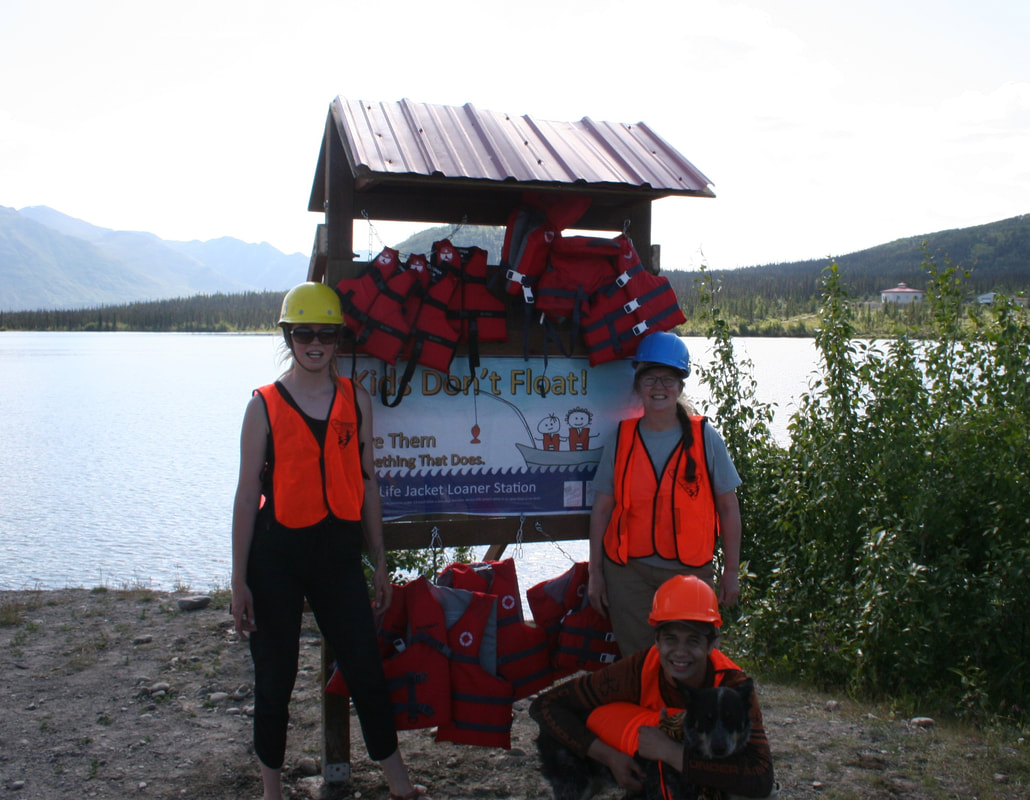
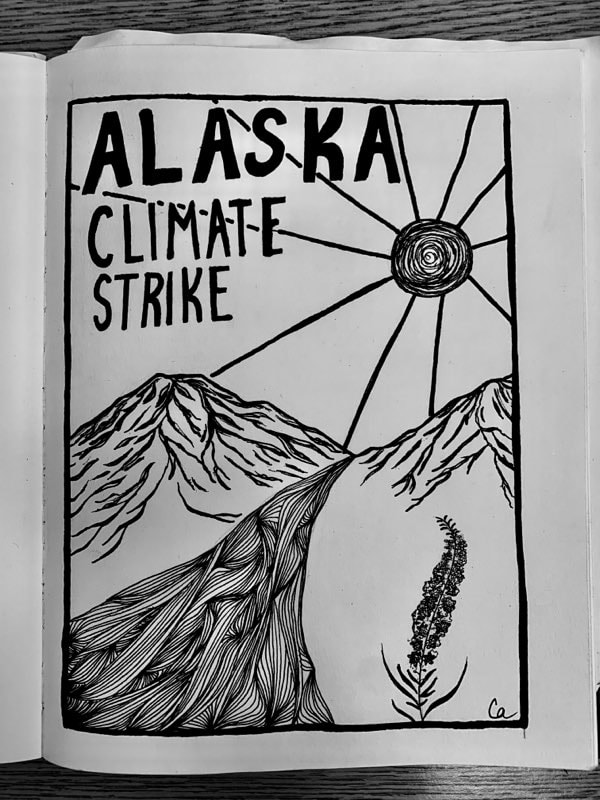
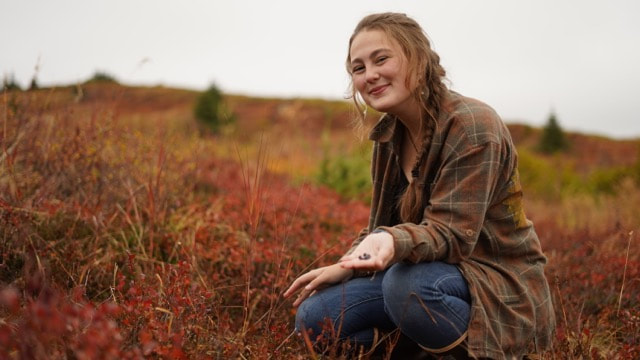
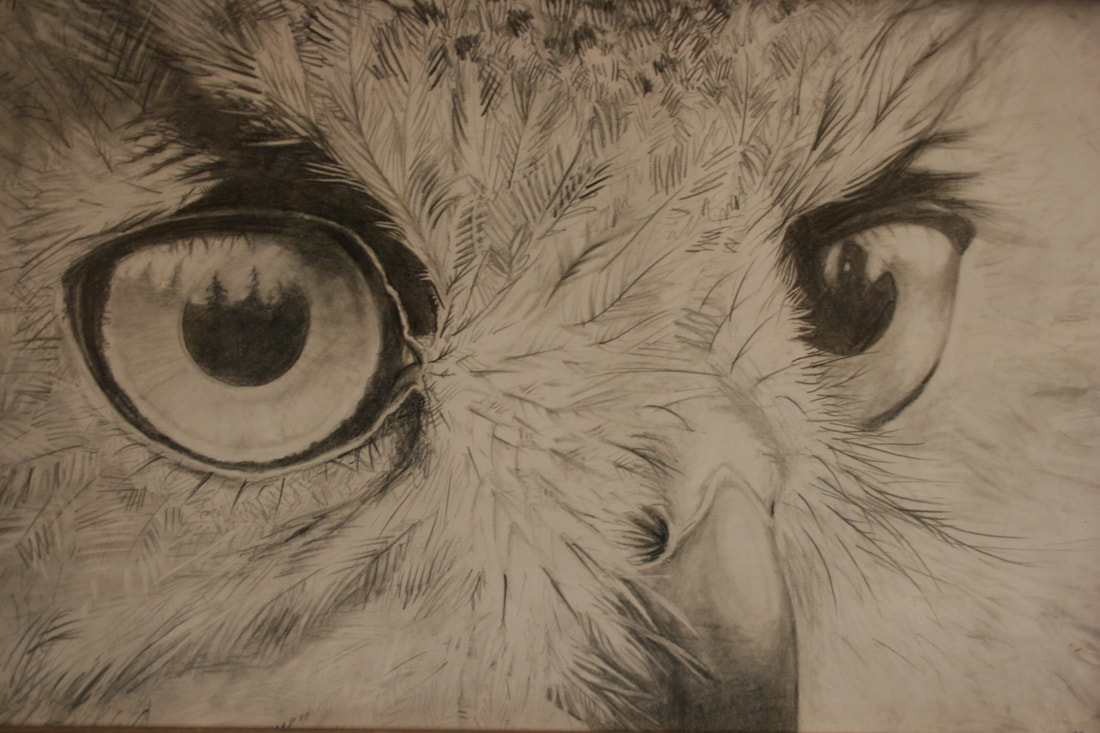
 RSS Feed
RSS Feed
